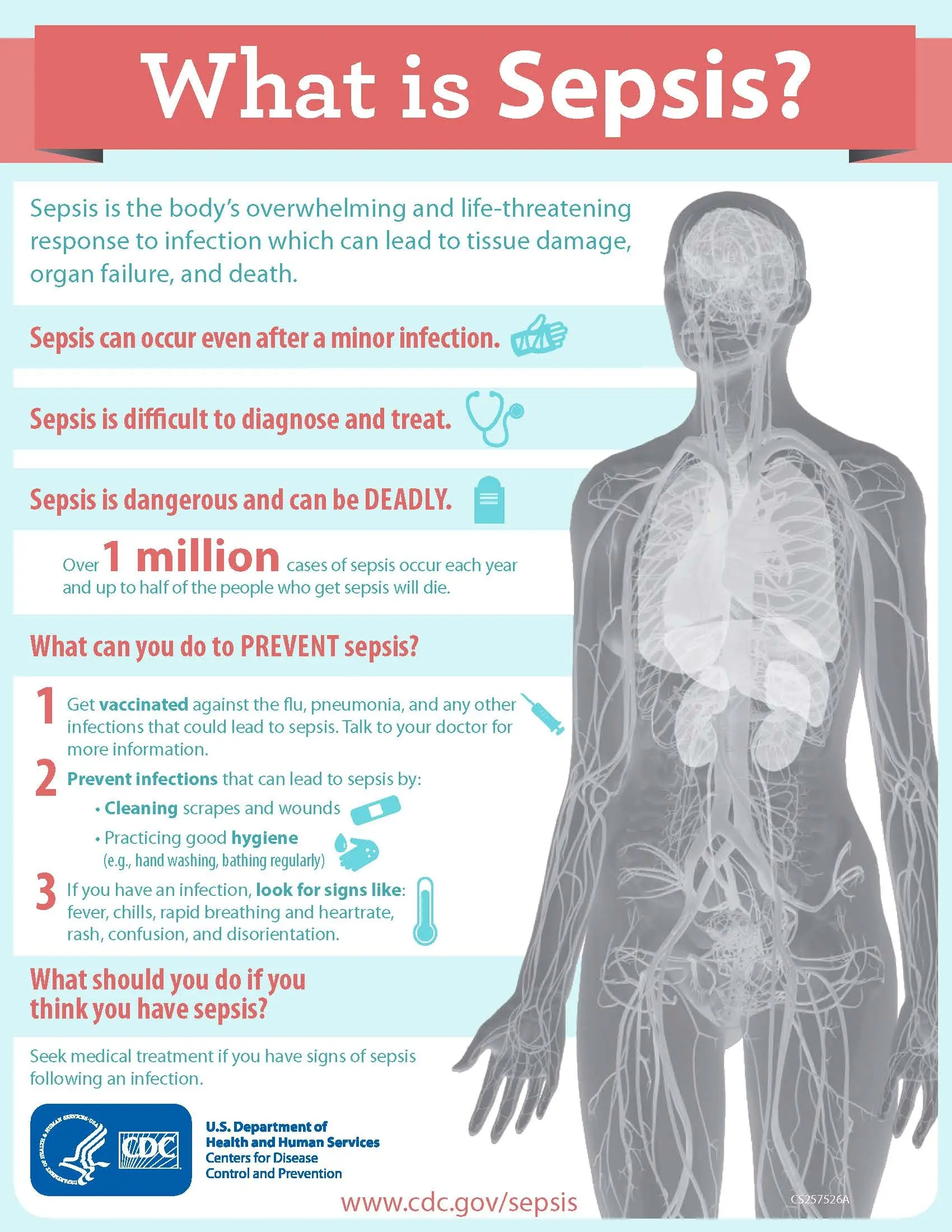Can Sepsis be Cured?
Depends on cause
Curable with appropriate antibiotics and supportive care; early treatment is crucial

What is Sepsis?
Sepsis is a severe, life-threatening response to an infection that can lead to organ failure. Treatment involves antibiotics, supportive care, and addressing the source of the infection. Regular monitoring is crucial for assessing the response to treatment and managing complications.

Clinical Aspects

Characteristics
Life-threatening response to infection

Symptoms
Fever, rapid heart rate, confusion

Diagnosis
Clinical evaluation, blood tests

Prognosis
Variable; depends on the severity and response to treatment

Complications
Organ failure, complications of untreated sepsis
Etiology and Treatment

Causes
Bacterial, viral, fungal, or parasitic infections

Treatments
Antibiotics, supportive care, fluids, organ support

Prevention
Antibiotics, supportive care, fluids, organ support
Public Health and Patient Perspectives

Epidemiology
Systemic inflammatory response to infection

Patient Perspectives
Early recognition and treatment are crucial for better outcomes
Remember, the information provided here is intended for general knowledge purposes and may not apply to every individual case. To ensure you have accurate information relevant to your specific situation, always consult with a healthcare professional.
Share: